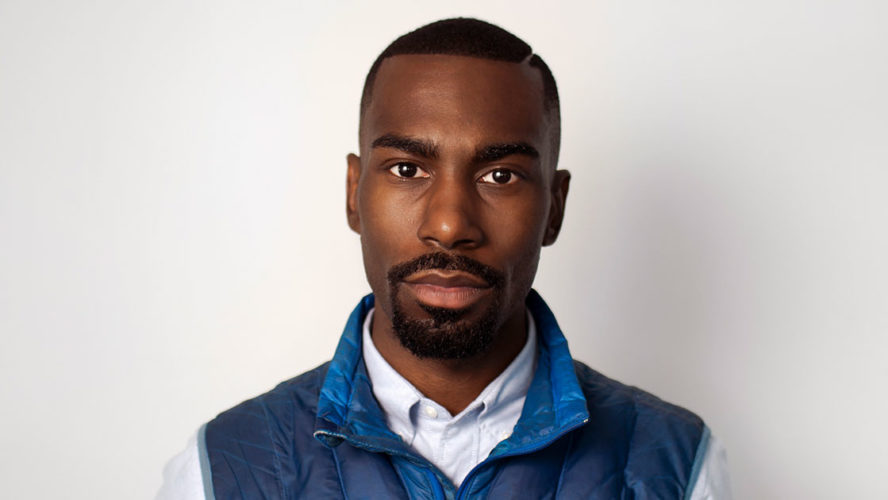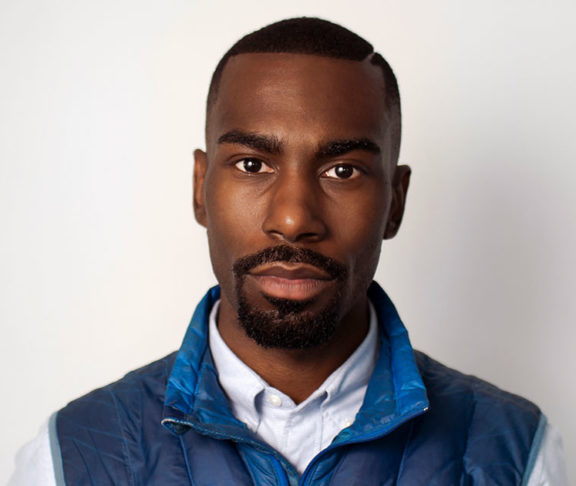When unarmed 18-year-old Michael Brown was shot and killed by a Ferguson, MO, police officer in August 2014, DeRay Mckesson watched the televised protests from hundreds of miles away.
“There was a call in Ferguson to come,” explained Mckesson, a former teacher and school administrator. “So, I drove from Minneapolis to St. Louis and linked up with some people I went to college with. I found somewhere to sleep.”
In addition to peaceful demonstrations, there were angry riots, which led to a curfew. According to the Baltimore native, police administered tear gas the first night.
“We didn’t do anything. I was there the whole night. I’ll just never forget it. Getting tear gassed was the thing that changed my life,” said Mckesson.
Making a commitment
Vowing to quit his job and focus on police reform, the 37-year-old civil rights activist was embarking on a journey he’d never anticipated.
“In Ferguson, the first real thing I did besides go outside was make peanut butter and jelly sandwiches,” said Mckesson, who attended police department sit-ins, raised awareness on social media, and trained with street medics.
“It was every day. We had no clue it was going to last that long. We just knew we were right,” he explained.
Mckesson is quick to dismiss reports that a small group organized the protests.
“We saw what happened with our eyes. People came out of their houses in Ferguson because the police killed Mike Brown. In the absence of trained organizers, people stayed in the streets. The ripple effect of social media spread around the country.”
Meals were prepared by volunteers, and even a bail fund was created.
“If you got arrested, you knew somebody was coming to get you,” Mckesson recalled, adding, “I’m always mindful that the protests lived because of a set of people who did incredible work.”
Campaign Zero
Following similar protests in other cities, Mckesson helped establish Campaign Zero, a research-based policy platform created to stop police brutality.
“First it was an idea. Can we create a world where nobody’s killed by the police and zero people are harmed by prisons and jails?” Mckesson explained.
In 2020, in response to the murder of George Floyd, Campaign Zero launched “8 Can’t Wait,” a database designed to monitor how eight policies to curtail police violence are carried out in major municipalities. They include banning chokeholds and strangleholds, as well as mandating that officers intervene when excessive force is used. Improving community interactions and ensuring accountability are part of the effort that challenges lawmakers to adopt policy solutions to end police violence.
Mckesson believes young people wanting to make a difference need to understand what’s required.
“There’s no substitute for knowing the content. I can’t tell you the number of people who walk in the room with heart only. This is not enough when we’re trying to change structural things.” Seeing the big picture, he pointed out, is crucial.
“It’s not only telling people what’s true, which is what we did in the streets, it’s not only reminding people about what’s possible, but it’s also being in the room and writing the law and writing the policy,” said Mckesson. “It’s being in a community, helping people day-to-day.”
A tireless voice for change, Mckesson is trying to maintain more of a work/life balance these days.
“There was a period of time where the movement was literally the only thing I did in the world, and I don’t think I was a very good friend,” he admitted.
With a full staff in place to handle routine operations, Mckesson now spends more at the gym and is rebuilding relationships. But he’s prepared to step in, should the need arise.
“If something has to happen, I’m always ready.”

